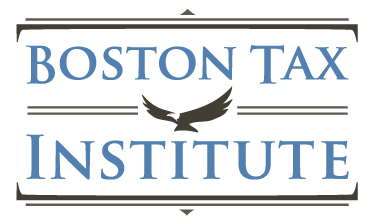There was a real shocker in the December 6th (2022-218) issue of the EO Tax Journal. In the Editor’s Notebook section Paul Streckfus was commenting on an article by Roger Coinavaux calling for reform of donor advised funds. Streckfus was his usual gloomy self noting that the intermediaries through their lobbyists have the clout to stop any reform. And then he dropped a bombshell:
What’s needed is reform that would generate public interest and discussion. We’re going to have a crowded field for presidential candidates over the next two years. One way for one of these candidates to get attention would be to propose repealing section 170 in its entirety. He or she could argue that the average person gets very little benefit out of deductibility. The billions of dollars saved by repealing section 170 could go to direct grants to individuals and organizations in need of support.
As you and I both know Section 170 of the Internal Revenue is “Charitable, etc., contributions and gifts”, but you have to consider the other readers who don’t think in Code Sections or even double entry, if you can believe it. Here we have one of the leading chroniclers of exempt organization tax law suggesting that we just burn it all down. In case you have never heard of Paul Streckfus, here is a little background.
About Paul Streckfus
Paul Streckfus as he went to work for IRS in the early seventies, while still a law student, was witnessing the dawn of the modern era of federal exempt organization tax administration. The Tax Reform Act of 1969 had radically changed the rules most notably in the area of private foundations, which to keep their charitable status had to start doing things that were, you know, charitable. Mr. Streckfus got some satisfaction out of expediting the recognition of some civil rights organizations that had been held up by a predecessor.
After the IRS, Mr. Streckfus worked as a private attorney a bit, but his real calling ended up being tax journalism. He edited and wrote for Tax Analysts and then started his own publication – the EO Tax Journal. EOTJ publishes as a daily email which is archived. EOTJ is oriented towards practitioners of tax exempt law making for a fairly narrow, but likely influential, readership. I learned about it from an IRS document dump arranged by Judicial Watch. Lois Lerner forwarded a copy of EOTJ 2010-40 commenting “More fuel for the potential c4 project fire”. This matter would become the IRS scandal that Paul Caron started tracking in May 2013.
He Is Not Kidding
Since Mr. Streckfus had framed his comment as something to come from a hypothetical presidential candidate, I checked in with him to see how serious is. He is very serious.
Much of giving by the wealthy redounds to their benefit. One, their benefit is compounded if they give appreciated property such as stock. Two, their benefit is further compounded if they give property that requires an appraisal, since appraisals are notoriously high. I’m not saying the wealthy should not give, but why should they be subsidized by the tax code, especially when most others are not?
Besides their tax benefits, the wealthy tend to give to organizations that they have an interest in – their college, the local opera, groups that support their areas of interest. If they are really wealthy, they can set up their own foundation, which becomes their plaything. Their kid who can’t hold a job now has one with the foundation. The family vacation to France becomes a fact-finding tour for new grant-making.
I am really with him on the colleges. I stopped giving to my alma mater partially because I am a senior citizen living on a broken income, but mainly because I found that like other nearly as prestigious schools I studied about half the grants and contributions were dropping to the bottom line. I also find that my alma mater is listed by the Education Trust as being an “engine of inequality”.
And There Is More
Mr. Streckfus asks why there should be any organizations that are exempt from tax. Many exempt organizations operate like businesses and have almost nothing charitable about them. Check out this recent New York Times story about a hospital chain .
Because of its nonprofit status, ————– avoids more than $1 billion a year in federal, state and local taxes, according to the Lown Institute, a health care think tank. Until the pandemic, —————– was consistently profitable, earning hundreds of millions a year. The past year was a rare exception: Because of the stock market downturn and soaring labor costs, —————– lost $1.8 billion.
If your organization raises money and then spends it on what it said it was going to do when it raised it, it will not have any profits to tax. Why does it need exempt status? Well there is the entirely undeserved dose of credibility that the magical 501(c) spell weaves. In some states it is what you need to run a gambling operation or serve liquor. And these matters will engage the attention of an agency tasked with collecting over $4 trillion.
As Mr. Streckfus puts it:
The reality is that organizations that deserve exemption (real charities helping the poor and needy) usually don’t have much income to report so exemption from tax provides no benefit.
What is it that real charities do? I lean towards the corporal works of mercy things like feeding the hungry, giving drink to the thirsty and welcoming the stranger. Engineering inequality not so much.
——————————————————————————————————————————————————————————–
Originally published on Forbes.com.
For great value continuing professional education. I recommend the Boston Tax Institute

You can register on-line or reach them by phone (561) 268-2269 or email vc@bostontaxinstitute.com. Mention Your Tax Matters Partner if you contact them.
For articles oriented toward tax professionals check out Think Outside The Tax Box.
































































































